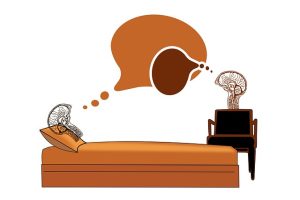Cognitive Behavioral Therapy (CBT) is a structured, collaborative talk therapy that targets negative thought patterns and behaviors, improving emotional well-being and adaptive actions. Skills-focused CBT (SFBT), a subtype, emphasizes goal-setting, skills acquisition (problem-solving, communication, stress management, emotional regulation), and real-life application under therapist support. Key CBT techniques like cognitive restructuring and behavioral activation modify behavior by addressing thought patterns and beliefs, fostering positive changes through practical tools for managing symptoms. CBT is effective for depression, anxiety, PTSD, eating disorders, and OCD, with research showing long-lasting benefits even years after treatment.
Skills-focused behavioral therapy (CBT) is a powerful approach that equips individuals with practical skills to manage and change unhelpful behaviors and thoughts. This article provides a comprehensive guide to CBT, covering its core principles, techniques, and real-world applications. From understanding cognitive restructuring to building effective coping strategies, we explore how CBT can be tailored to address specific goals. Discover the research-backed benefits of this transformative therapy and learn how it’s implemented in clinical practice.
Understanding CBT Therapy: A Brief Overview

CBT therapy, or Cognitive Behavioral Therapy, is a structured and goal-oriented form of talk therapy that focuses on identifying and changing negative thought patterns and behaviors. It’s a collaborative process between therapist and client, where they work together to understand and modify underlying cognitive structures that influence emotional responses and behaviors. By challenging unhelpful thoughts and replacing them with more realistic and positive ones, CBT can help individuals manage various mental health conditions effectively.
This therapeutic approach is based on the understanding that our thoughts, feelings, and actions are interconnected. Negative or distorted thinking can lead to intense emotions and problematic behaviors. CBT aims to help clients recognize these thought patterns and replace them with healthier alternatives, leading to improved emotional well-being and more adaptive behaviors. It’s a widely recognized and evidence-based method used in the treatment of conditions such as depression, anxiety disorders, post-traumatic stress disorder (PTSD), and eating disorders.
Core Principles of Skills-Focused Behavioral Therapy

Skills-focused behavioral therapy (SFBT) is a form of cognitive-behavioral therapy (CBT) that emphasizes teaching clients practical skills to manage their emotions and behaviors more effectively. At its core, SFBT is built on several key principles designed to empower individuals with the tools needed for lasting change.
The first principle is goal-setting, where therapists work collaboratively with clients to establish specific, measurable goals tailored to the individual’s unique needs. This is followed by skills acquisition, where evidence-based techniques are taught and practiced. These may include problem-solving, communication, stress management, and emotional regulation strategies. The therapy then focuses on applying these skills in real-life situations, with ongoing support and reinforcement from the therapist. This active engagement ensures that clients develop a deep understanding of their abilities and gain confidence in using the acquired skills to overcome challenges.
Identifying Target Behaviors and Goals

In skills-focused behavioral therapy, such as Cognitive Behavioral Therapy (CBT), identifying target behaviors and setting clear goals is a crucial first step. Therapists work closely with clients to pinpoint specific actions or responses that they wish to change or improve. This process involves a thorough assessment of the individual’s challenges and aspirations. By understanding the context in which problematic behaviors occur, therapists can tailor interventions to address them effectively.
The goal-setting phase is collaborative, ensuring that both therapist and client are aligned. Together, they define achievable yet meaningful objectives, often broken down into smaller milestones. These goals guide the therapy process, enabling clients to learn new skills and strategies to manage their behaviors more adaptively. This structured approach, inherent in CBT, empowers individuals to take ownership of their progress and foster long-lasting positive changes.
Techniques Used in CBT to Modify Behavior

Cognitive Behavioral Therapy (CBT) employs a range of effective techniques to modify behavior by addressing underlying thought patterns and beliefs. One key method is cognitive restructuring, where therapists help individuals identify and challenge negative or distorted thoughts, replacing them with more realistic and adaptive ones. This process empowers clients to change their emotional responses and behaviors.
Another powerful tool in CBT is behavioral activation, which encourages patients to engage in activities that are meaningful to them. By scheduling and participating in these activities, individuals can experience a sense of accomplishment and improve their overall mood and well-being. Through these techniques, CBT offers practical strategies for managing symptoms and fostering positive behavioral changes.
The Role of Cognitive Restructuring in CBT

Cognitive Restructuring is a core component of Cognitive Behavioral Therapy (CBT), playing a pivotal role in helping individuals challenge and change negative thought patterns. By identifying distorted or irrational beliefs, CBT therapy encourages clients to replace them with more balanced and realistic ones. This process involves examining evidence for and against these thoughts, often revealing that they are not as absolute or dangerous as initially perceived.
Through this restructuring, individuals learn to view situations differently, leading to improved emotional responses and behaviors. It’s a collaborative effort between the therapist and client, where insights are gained, and personal insights foster self-awareness and empowerment. This component of CBT therapy is particularly effective in managing conditions like anxiety and depression by providing tools to navigate challenging thoughts and emotions more effectively.
Building Coping Strategies with CBT Therapy

CBT therapy focuses on empowering individuals to develop effective coping strategies for managing their emotions and behaviors. Through this therapeutic approach, clients learn to identify negative thought patterns and challenge them with more realistic and adaptive thinking. By understanding the connection between thoughts, feelings, and actions, people can gain valuable insights into how they respond to stress, anxiety, or difficult situations.
One of the key aspects of CBT is teaching practical techniques to cope with challenges. This includes relaxation exercises, mindfulness practices, and problem-solving skills. Individuals are equipped with tools to handle triggers, manage impulsive reactions, and make healthier choices. By building these coping strategies, CBT therapy enables people to navigate life’s obstacles with increased resilience and improved overall well-being.
Implementing CBT in Clinical Practice

Implementing CBT in clinical practice involves several key steps. First, therapists must develop a strong understanding of the client’s specific needs and goals. This includes assessing their current challenges, identifying areas for improvement, and setting measurable objectives. By clearly defining these targets, CBT therapists can tailor their approach to effectively address the individual’s unique circumstances.
Once goals are established, therapists employ evidence-based techniques from cognitive behavioral therapy (CBT) to help clients challenge negative thought patterns and behaviors. This process typically includes teaching mindfulness skills, guiding clients through structured conversations, and encouraging them to keep detailed records of their thoughts, feelings, and behaviors. Through consistent practice and feedback, clients learn to replace maladaptive strategies with healthier coping mechanisms, leading to lasting positive changes.
Research Support for Skills-Focused CBT

Skills-focused behavioral therapy (CBT) has garnered significant research support, solidifying its position as an effective treatment approach. Numerous studies have demonstrated its efficacy in addressing a wide range of mental health issues, including depression, anxiety disorders, and obsessive-compulsive disorder (OCD). The evidence suggests that CBT helps individuals learn and apply specific skills to manage their symptoms and improve overall well-being.
Research has shown that skills-focused CBT leads to lasting improvements, with many studies reporting positive outcomes even years after treatment. This longevity is attributed to the practical nature of CBT, which equips clients with actionable tools they can continue to use in their daily lives. Moreover, the structured and goal-oriented nature of CBT facilitates measurable progress, providing both clients and therapists with clear indicators of success and areas for further development.
